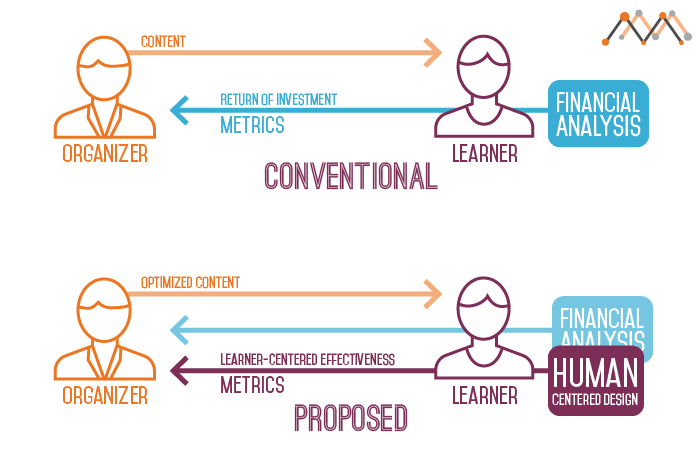Human centered approach for e-Learning
With the emergence of e-Learning as an alternative to the traditional classroom setting, education has become highly accessible, affordable and convenient. e-Learning has the potential to be applied in many different learning settings, and has shown to be equally as effective as traditional learning environments. However, a major limitation to e-Learning is learner retention and motivation to successfully complete a course. Due to its high degree of flexibility and, often, poorly created content, learners are less committed to completing course materials, which is ultimately reflected in poor learning outcomes.
Traditionally, e-Learning programs are designed with evaluation in mind. These evaluations, like the Kirkpatrick’s Learning Evaluation Model, are typically designed to be organizer centered, reporting on usability and return on investment, especially in industrial or corporate contexts. Regardless of benefits to the organizer, e-Learning often fails to satisfy and engage the learners, or end users. A major contributor to this downfall is that existing evaluations fail to consider or successfully evaluate user engagement and satisfaction with the eLearning. A number of learning management systems, such as those provided by Blackboard, Desire2Learn, and Oracle, go so far as to assess students’ academic progress and usage of the learning environment for the benefit of the organizer.
From a learner’s perspective, the quality of the e-Learning content and its ability to motivate engagement in active learning is crucial. There is a need for comprehensive e-Learning metrics that consider the needs of the most important stakeholders, the end users, the learners. In the grand scheme of things, learning is a human-centered process and should be designed as such. The field of learning analytics and metrics still has incredible room for growth and improvement. Human-centered design has the potential to provide insight on the most important measures of motivation and engagement for delivering the learning outcomes we should expect from e-Learning.

